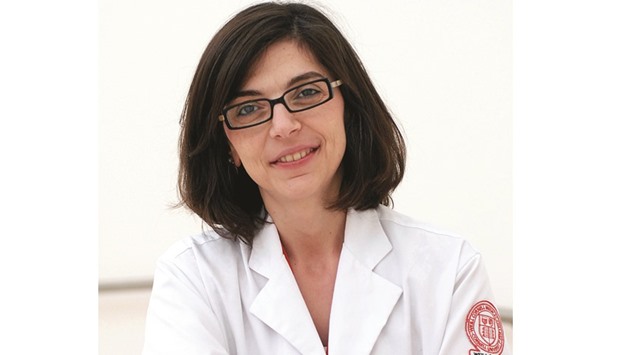Researchers at Weill Cornell Medicine-Qatar (WCM-Q) have completed a five-year investigation of the genetic factors underlying susceptibility to rheumatoid arthritis in Arab populations in five different countries.
WCM-Q’s Dr Thurayya Arayssi, associate professor of medicine/senior associate dean for Medical Education, led a team of researchers from five centres across the Arab World that collected samples from around 1,600 individuals with rheumatoid arthritis in Qatar, Jordan, Saudi Arabia, Lebanon and the UAE, plus samples from control subjects.
They also worked with researchers at the Broad Institute of MIT and Harvard to analyse the genetic data of Arab populations in comparison with European and East Asian populations in relation to susceptibility to rheumatoid arthritis.
The team found that mutations in a gene called HLA-DRB1 are associated with rheumatoid arthritis (RA) risk in Arab populations just as is the case with Europeans and East Asians, suggesting broad similarities in the genetic structure of RA across ethnic groups.
However, the study also identified two additional genes that are associated with rheumatoid arthritis in Arabs but are not in Europeans and East Asians.
Dr Arayssi said the research is one of the largest studies ever conducted among Arabic populations with Rheumatoid Arthritis.
“The results of the study give us new and extremely valuable population-specific insights into the pathophysiology of rheumatoid arthritis, which is extremely encouraging. RA is a very unpleasant disease to live with so any discoveries we can make about it are very valuable and could help future researchers develop new, more effective drug therapies.”
Rheumatoid arthritis is a potentially debilitating autoimmune disease characterised by very painful inflammation of the joints, particularly in the hands and feet.
Dr Richa Saxena of the Broad Institute observed that Arab populations are diverse, and as in other populations, family history is an important risk factor for rheumatoid arthritis in Arabs. “We found that dozens of genes already known for RA from European and Asian populations also play an important role in Arabs. Surprisingly, we also found two new genetic factors that increase risk of RA in Arabs only but do not influence risk in these other populations.”

Dr Arayssi


